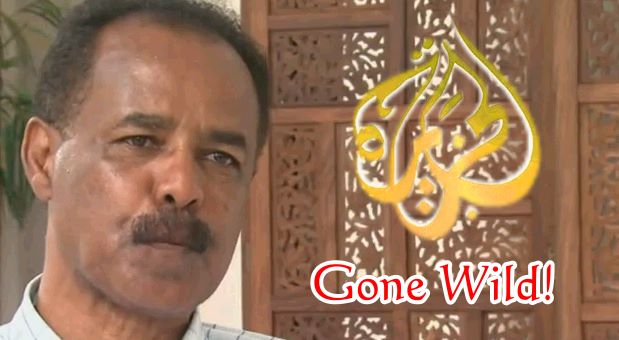Eritrea: Isaias Afewerki is proof why there must be regime change

The desired change can happen any time depending on how soon the people want it. The issues and problems have been clearly identified and explained thoroughly through the years and they require no further discussion or analysis. It is time to act. The “evidences” - as Isaias likes to call them - for the genocidal crimes being committed are all over his face. What is urgently needed is for all Eritreans to fully cooperate with history for a smooth transition to a just and free country.
To their credit, Eritrea’s anti-tyranny forces (political and civic), especially the fearless Eritrean pundits and bloggers, have succeeded in getting the political and media establishments of the world to accurately define the Isaias regime and the dangers it poses. Explanations given by the United Nations in imposing its crippling sanctions and Al-Jazeera, BBC and every other western media portrayal of Isaias as an incurable tyrant are among the clear cases in point.
What are the next steps?
Expectedly, the rallies in four Western capitals on Feb 22 against the UN sanctions impressed no body including the ruling PFDJ regime itself. The protests were never about the irrevocable UN sanctions. Evidently, the regime was merely hoping its terrified Diaspora tax payers and fund-raisers would further endorse its policies of mass torture and imprisonment of innocent people by giving it more moral and financial support.
The call for public sympathy is common among tyrants. In 1977, Dictator Mengistu Haile Mariam within a few hours managed to get half a million of Addis Ababa residents out on the streets of the city in an attempt to get support for his ‘Red Terror’ atrocities which by that time had already killed tens of thousands of unarmed civilians.
Whatever the Asmara leaders wanted to achieve, it is imperative for the opposition to try to win over well-meaning Eritrean nationalists such as many of those protesting in Wash. D.C last month. These patriots should realize that the only way to defend the country’s independence and sovereignty is by first upholding principles of justice, rule of law and freedom of speech.
Equally important is the task of enlisting many other patriots who are leading ethnic, regional or religious-based political campaigns and work with them for the realization of equality and liberty for all Eritreans in a just and united society. UK based activist and researcher Ahmed Suleman says: "We have a right to diversify or differ but we have a religious and historical obligation to remain united.”
Reflecting divergent approaches and emphasis, many other Eritrean thinkers, among them, Professor Bereket H. Selassie (USA), Omar Jabir, Yosief Ghebrehiwet (USA), Hussien Salman (Sudan), Seyoum Tesfaye (USA), Mogos Tekeste (USA)…(obviously, the list is very long), have shown that, in the end, the pen is mightier than the bullet. Now it is time for these and other intellectuals and activists to change gear and begin to spur the public toward action-oriented thinking and mobilizing in order to swiftly stamp out despotism.
There is already a general consensus among Eritreans that the civic and political opposition should be working closely with the UN Security Council and all other players making sure the sanctions are comprehensive enough to include foreign trade and mining investments. Others are calling for the immediate and full implementation of the arms embargo, account freezes and travel bans on Eritrean leaders; some governments have already taken such action.
Other Eritreans also see the need to end PFDJ’s fundraising activities in foreign countries unless there are transparent guarantees that the money will go directly to Eritreans who need it most. Finally, there are those who think there should be a task force of experts to take on the possible questions of war crimes and crimes against humanity committed by the regime inside Eritrea and beyond its borders.
Since the UN punitive measures on December 23, 2009, this reporter has interviewed over ten Eritrean political and social activists exclusively dealing with the topic of sanctions. For many of them, the sanctions rightly represent a light at the end of the tunnel. The truth remains, however, that Isaias would rather continue to wield and enjoy his power in the dark terrorizing a voiceless population.
That is why the UN sanctions are made to be down-to-earth. They are directed at every penny Isaias can lay his hands and feet on. No money, no repressive power. It is that simple. What is left now is for Eritreans to roll up their sleeves and start sweating in assisting the UN, the EU and the African Union in any way possible to make certain that the sanctions will have the maximum impact. There is no time to waste while people are starving and getting killed as they try to flee the country.


![[AIM] Asmarino Independent Media](/images/logo/ailogo.png)